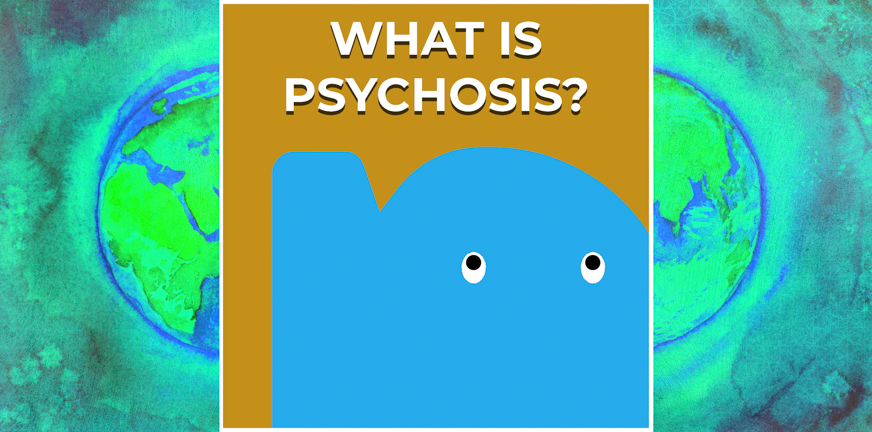
Psychosis is a state of ‘hyper-meaning’: perceiving the outside and inside world as filled with personal meaning to an incredible degree. Our minds are always busy trying to work out what is real or not. What might be dangerous and what needs our attention. Most of the time it makes a pretty good guess. But sometimes a mix of sensory information, past memories and expectations can stimulate the imagination a bit too much. That’s when you have a psychotic experience.
Behind every tree, there could be a murderer. Or that’s what you think while walking home after watching a scary movie. And the wind now sounds like the voice of someone screaming. These are mild psychotic experiences: a delusion of threat; hearing screams that aren’t really there. But you are not having a full-blown psychosis, because you can still test what is real and what is not.
We can all be frightened, and we are all capable of imagining things
We even have to. People sometimes have intense spiritual experiences that can lead to extraordinary states of consciousness and personal growth. And because we need to respond flexibly to the world around us, we are always looking for meaning: why is my boss giving me such a hard time? Are those two people seeing each other? Are the people on the bus laughing at me? Why is this person staring at me? To handle such questions, it is only healthy to be a little suspicious sometimes. And so is talking to yourself aloud, to organise your thoughts.
But sometimes your suspicions can become so extreme (delusions) or the inner voices in your head so controlling (hallucinations) that you can no longer function in your daily life. In that case your suspicions, inner voices or sense of possible danger are no longer healthy experiences, but turned into symptoms of psychosis that you need to seek help for.
Everyone can get a little psychotic some time
A slight touch of psychosis is not a problem. Scientific studies show that it happens to a lot of people at some point, and not always with a serious impact. But psychotic experiences can become problematic when they are more severe, last longer and come with depression, mania or changes in motivation or cognition. For example: for quite some time you have the feeling that strange things are happening around you… This is a mild psychotic experience: you are still able to function reasonably well and other people are mostly unaware of your state of mind. The strange feeling can disappear again: in that case nothing is wrong.
Watch the animation “Everybody has psychotic experiences
What is psychosis?
Sometimes psychotic ideas become so dominant in your thoughts that you can think of little else. You even start acting on these beliefs. For instance, you think you are being followed by the CIA and go to the police and the American embassy to complain. You are thinking and reasoning on the basis of your psychosis, and see many things that prove your ideas are correct.
At this point, you will sooner or later get into conflict with the world around you. Often, other people will say you are acting weird and want to call on mental health professionals. But you experience your own psychosis quite differently: you are convinced that the truth has been revealed to you and feel it is the people around you who have changed and behave oddly. You feel threatened.
Psychosis is more than just having delusions or hallucinations
When you are going through psychosis, you do not just suffer from delusions or hallucinations. Psychosis is a combination (syndrome) of a number of different types of symptoms. The exact combination is different from person to person. For instance, someone could mostly be having feelings of mistrust, while another is mostly hearing angry voices. And someone else might suffer from mood swings, feeling deeply sad and sluggish (depression) one moment and extremely upbeat and hyperactive (manic) the next. And others feel no motivation to carry out simple everyday tasks (motivational problems), have problems with attention and their ability to concentrate, and feel their ability to plan and learn is impaired (cognitive problems).
We speak of a ‘full’ psychosis when the psychotic experience is dominating your life so much that you can no longer function (properly) in everyday life. You are completely absorbed in your own reality and can no longer tell the difference between delusion and reality. In your psychotic state, delusions, voices or hallucinations may feel more real than the actual world around you. Emotionally, they can feel like a revelation; as if you finally figured out something very important. But that is not what people around you are experiencing. This conflict of different realities is often very confusing and can lead to unpleasant confrontations.
Watch the animation “What is psychosis?”




